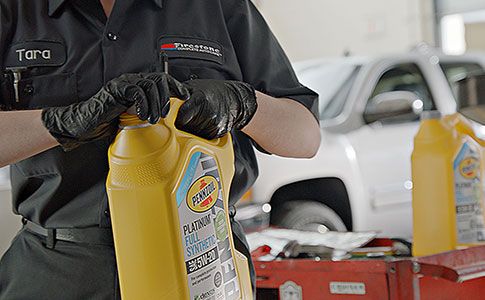Will Your Car Start Without a Catalytic Converter?

If you’re wondering, “Will my car start without a catalytic converter?”, the short answer is yes, your car can start and run without a catalytic converter, but it will likely face significant issues. The catalytic converter is an essential component for reducing harmful emissions, and although the car may run, it won’t perform as it should.
What is a Catalytic Converter?
The catalytic converter is a critical part of your vehicle’s exhaust system. Its main purpose is to convert harmful gases like carbon monoxide, nitrogen oxides, and hydrocarbons into less harmful emissions (mainly carbon dioxide and water vapor) before they are released into the environment.
How It Works:
- Filters out harmful gases – The catalytic converter reduces emissions by converting toxic pollutants into less harmful substances.
- Improves air quality – It helps your vehicle meet emission standards and keeps harmful chemicals from polluting the environment.
What Happens if You Drive Without a Catalytic Converter?
While your car will likely start and run without a catalytic converter, there are several potential consequences:
1. Increased Emissions
Without a catalytic converter, your car will emit harmful gases such as carbon monoxide and nitrogen oxides, which contribute to air pollution and are harmful to both the environment and your health.
2. Poor Engine Performance
The catalytic converter is designed to work with the exhaust system to regulate the engine’s performance. Without it, your vehicle may experience:
- Decreased engine efficiency
- Rough idling or stalling
- Loss of power and acceleration
3. Potential Damage to Other Parts
Driving without a catalytic converter may cause backpressure issues in the exhaust system, which could damage the engine over time. Additionally, the exhaust gases will be hotter and may cause other components of your vehicle’s exhaust system to deteriorate faster.
4. Check Engine Light
Your vehicle’s onboard diagnostics (OBD) system will likely detect the absence of the catalytic converter and trigger the check engine light. This is because the system is programmed to monitor the emissions system, and a missing catalytic converter will be seen as a malfunction.
5. Legal Issues
In many places, it is illegal to drive a vehicle without a catalytic converter because it violates emission standards. If your vehicle is caught without one, you may face fines or fail emissions inspections.
Can You Legally Drive a Car Without a Catalytic Converter?
In most areas, it is illegal to drive a car without a catalytic converter, especially if the vehicle is not specifically exempted (e.g., older classic cars or vehicles modified for racing). Failing emissions tests or getting caught driving without one could lead to significant fines, penalties, or a failed inspection.
What Should You Do if Your Catalytic Converter is Missing or Damaged?
If you find that your catalytic converter is damaged or missing, here’s what you should do:
1. Replace the Catalytic Converter
The best solution is to replace the catalytic converter with a new one. It’s essential to ensure that the replacement matches the specifications of your vehicle to maintain proper performance and meet emissions standards.
2. Visit a Mechanic
If you’re unsure whether your catalytic converter is damaged, have a mechanic inspect the exhaust system. They can confirm whether you need a replacement or if other repairs are necessary.
3. Check for Legal Requirements
Before making any modifications, ensure that you’re complying with local laws regarding emissions and vehicle regulations. Consult with a local mechanic to verify that you’re following legal guidelines.
FAQs
1. Can my car run without a catalytic converter?
Yes, your car can run without a catalytic converter, but it will not operate optimally and may face significant performance issues.
2. How do I know if my catalytic converter is bad?
Signs of a bad catalytic converter include poor engine performance, a check engine light, strange smells, reduced fuel efficiency, and increased emissions.
3. How much does it cost to replace a catalytic converter?
The cost of replacing a catalytic converter varies depending on the make and model of your car. On average, it can range from $500 to $2,500.
4. Will removing the catalytic converter increase horsepower?
Removing the catalytic converter may provide a slight increase in horsepower due to less exhaust restriction, but this can result in long-term engine damage and illegal emissions.
5. Can I pass an emissions test without a catalytic converter?
No, most vehicles cannot pass an emissions test without a catalytic converter. The absence of the converter will lead to high pollutant emissions, causing a failed test.
Conclusion
While your car can start and run without a catalytic converter, it’s not recommended. Not only does it violate emissions regulations, but it can also cause engine performance issues, increase pollution, and lead to costly repairs in the future. If your catalytic converter is damaged or missing, it’s essential to replace it as soon as possible to ensure optimal performance and compliance with local regulations.





